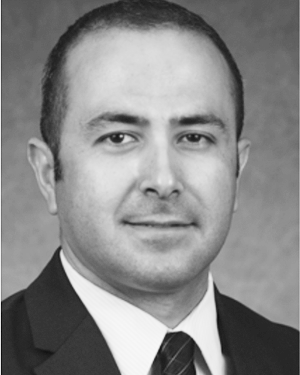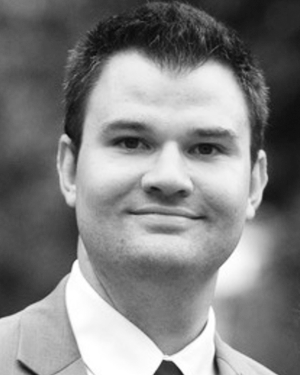Abstract:
In the past, team coordination dynamics have been explored using nonlinear dynamical systems (NDS) methods, but the relationship between team coordination dynamics and te...Show MoreMetadata
Abstract:
In the past, team coordination dynamics have been explored using nonlinear dynamical systems (NDS) methods, but the relationship between team coordination dynamics and team performance for all-human teams was assumed to be linear. The current study examines team coordination dynamics with an extended version of the NDS methods and assumes that its relationship with team performance for human-autonomy teams (HAT) is nonlinear. In this study, three team conditions are compared with the goals of better understanding how team coordination dynamics differ between all-human teams and HAT and how these dynamics relate to team performance and team situation awareness. Each condition was determined based on manipulation of the .pilot role: in the first condition (synthetic) the pilot role was played by a synthetic agent, in the second condition (control) it was a randomly assigned participant, and in the third condition (experimenter) it was an expert who used a role specific coordination script. NDS indices revealed that synthetic teams were rigid, followed by experimenter teams, who were metastable, and control teams, who were unstable. Experimenter teams demonstrated better team effectiveness (i.e., better team performance and team situation awareness) than control and synthetic teams. Team coordination stability is related to team performance and team situation awareness in anonlinear manner with optimal performance and situation awareness associated with metastability coupled with flexibility. This result means that future development of synthetic teams should address these coordination dynamics, specifically, rigidity in coordination.
Published in: IEEE Transactions on Human-Machine Systems ( Volume: 49, Issue: 2, April 2019)
Funding Agency:

Human Systems Engineering, Arizona State University, Mesa, AZ, USA
Mustafa Demir (M’15) received the Ph.D. degree in simulation, modeling and applied cognitive science with a focus on team coordination dynamics in human-autonomy teaming from Arizona State University, Tempe, Arizona, in Spring 2017.
He is currently a Postdoctoral Research Associate with Dr. Nancy Cooke at Ira A. Fulton Schools of Engineering, Arizona State University, working in direct collaboration. His current research i...Show More
Mustafa Demir (M’15) received the Ph.D. degree in simulation, modeling and applied cognitive science with a focus on team coordination dynamics in human-autonomy teaming from Arizona State University, Tempe, Arizona, in Spring 2017.
He is currently a Postdoctoral Research Associate with Dr. Nancy Cooke at Ira A. Fulton Schools of Engineering, Arizona State University, working in direct collaboration. His current research i...View more

Department of Psychology, Arizona State University, Tempe, AZ, USA
Aaron D. Likens received the Ph.D. degree in cognitive science from Arizona State University, Tempe, Arizona with a focus on time series modeling of multiscale phenomena.
He is a Research Associate working with Dr. Nicholas Stergiou at the Center for Research in Human Variability, the Department of Biomechanics, the University of Nebraska at Omaha. His current research interests include development and application of dynam...Show More
Aaron D. Likens received the Ph.D. degree in cognitive science from Arizona State University, Tempe, Arizona with a focus on time series modeling of multiscale phenomena.
He is a Research Associate working with Dr. Nicholas Stergiou at the Center for Research in Human Variability, the Department of Biomechanics, the University of Nebraska at Omaha. His current research interests include development and application of dynam...View more

Human Systems Engineering, Arizona State University, Mesa, AZ, USA
Nancy J. Cooke received the Ph.D. degree in cognitive psychology from New Mexico State University, Las Cruces, NM, USA, in 1987.
She is a Professor of human systems engineering, Arizona State University and is the Science Director of the Cognitive Engineering Research Institute, Mesa, AZ, USA. She directs the ASU Center for Human, Artificial Intelligence, and Robot Teaming. She specializes in the development, application,...Show More
Nancy J. Cooke received the Ph.D. degree in cognitive psychology from New Mexico State University, Las Cruces, NM, USA, in 1987.
She is a Professor of human systems engineering, Arizona State University and is the Science Director of the Cognitive Engineering Research Institute, Mesa, AZ, USA. She directs the ASU Center for Human, Artificial Intelligence, and Robot Teaming. She specializes in the development, application,...View more

Department of Psychology, Arizona State University, Tempe, AZ, USA
Polemnia G. Amazeen received the Ph.D. degree in psychology from the Center for the Ecological Study of Perception and Action, the University of Connecticut, Storrs, CT, USA, in 1996, and completed postdoctoral training from the faculty of human movement science, the Vrije Universiteit, Amsterdam, The Netherlands.
She is an Associate Professor with the Department of Psychology, Arizona State University, Tempe, Arizona. She...Show More
Polemnia G. Amazeen received the Ph.D. degree in psychology from the Center for the Ecological Study of Perception and Action, the University of Connecticut, Storrs, CT, USA, in 1996, and completed postdoctoral training from the faculty of human movement science, the Vrije Universiteit, Amsterdam, The Netherlands.
She is an Associate Professor with the Department of Psychology, Arizona State University, Tempe, Arizona. She...View more

Human-Centered Computing, Clemson University, Clemson, SC, USA
Nathan J. McNeese received the Ph.D. degree in information sciences and technology with a focus on team decision making, cognition, and computer supported collaborative work from The Pennsylvania State University, State College, PA, USA, in the fall of 2014.
He is an Assistant Professor and the Director of the Team Research Analytics in Computational Environments Research Group within the division of Human-Centered Computi...Show More
Nathan J. McNeese received the Ph.D. degree in information sciences and technology with a focus on team decision making, cognition, and computer supported collaborative work from The Pennsylvania State University, State College, PA, USA, in the fall of 2014.
He is an Assistant Professor and the Director of the Team Research Analytics in Computational Environments Research Group within the division of Human-Centered Computi...View more

Human Systems Engineering, Arizona State University, Mesa, AZ, USA
Mustafa Demir (M’15) received the Ph.D. degree in simulation, modeling and applied cognitive science with a focus on team coordination dynamics in human-autonomy teaming from Arizona State University, Tempe, Arizona, in Spring 2017.
He is currently a Postdoctoral Research Associate with Dr. Nancy Cooke at Ira A. Fulton Schools of Engineering, Arizona State University, working in direct collaboration. His current research interests include Human-Autonomy teaming, team cognition, complex systems, and advanced statistical modeling.
Mustafa Demir (M’15) received the Ph.D. degree in simulation, modeling and applied cognitive science with a focus on team coordination dynamics in human-autonomy teaming from Arizona State University, Tempe, Arizona, in Spring 2017.
He is currently a Postdoctoral Research Associate with Dr. Nancy Cooke at Ira A. Fulton Schools of Engineering, Arizona State University, working in direct collaboration. His current research interests include Human-Autonomy teaming, team cognition, complex systems, and advanced statistical modeling.View more

Department of Psychology, Arizona State University, Tempe, AZ, USA
Aaron D. Likens received the Ph.D. degree in cognitive science from Arizona State University, Tempe, Arizona with a focus on time series modeling of multiscale phenomena.
He is a Research Associate working with Dr. Nicholas Stergiou at the Center for Research in Human Variability, the Department of Biomechanics, the University of Nebraska at Omaha. His current research interests include development and application of dynamical systems theory with diverse application in human movement science and psychology.
Aaron D. Likens received the Ph.D. degree in cognitive science from Arizona State University, Tempe, Arizona with a focus on time series modeling of multiscale phenomena.
He is a Research Associate working with Dr. Nicholas Stergiou at the Center for Research in Human Variability, the Department of Biomechanics, the University of Nebraska at Omaha. His current research interests include development and application of dynamical systems theory with diverse application in human movement science and psychology.View more

Human Systems Engineering, Arizona State University, Mesa, AZ, USA
Nancy J. Cooke received the Ph.D. degree in cognitive psychology from New Mexico State University, Las Cruces, NM, USA, in 1987.
She is a Professor of human systems engineering, Arizona State University and is the Science Director of the Cognitive Engineering Research Institute, Mesa, AZ, USA. She directs the ASU Center for Human, Artificial Intelligence, and Robot Teaming. She specializes in the development, application, and evaluation of methodologies to elicit and assess individual and team cognition.
Nancy J. Cooke received the Ph.D. degree in cognitive psychology from New Mexico State University, Las Cruces, NM, USA, in 1987.
She is a Professor of human systems engineering, Arizona State University and is the Science Director of the Cognitive Engineering Research Institute, Mesa, AZ, USA. She directs the ASU Center for Human, Artificial Intelligence, and Robot Teaming. She specializes in the development, application, and evaluation of methodologies to elicit and assess individual and team cognition.View more

Department of Psychology, Arizona State University, Tempe, AZ, USA
Polemnia G. Amazeen received the Ph.D. degree in psychology from the Center for the Ecological Study of Perception and Action, the University of Connecticut, Storrs, CT, USA, in 1996, and completed postdoctoral training from the faculty of human movement science, the Vrije Universiteit, Amsterdam, The Netherlands.
She is an Associate Professor with the Department of Psychology, Arizona State University, Tempe, Arizona. She specializes in the analysis of coordination across people (social interactions) and within people (bimanual and motor-respiratory coordination) using the tools of dynamical systems analysis.
Polemnia G. Amazeen received the Ph.D. degree in psychology from the Center for the Ecological Study of Perception and Action, the University of Connecticut, Storrs, CT, USA, in 1996, and completed postdoctoral training from the faculty of human movement science, the Vrije Universiteit, Amsterdam, The Netherlands.
She is an Associate Professor with the Department of Psychology, Arizona State University, Tempe, Arizona. She specializes in the analysis of coordination across people (social interactions) and within people (bimanual and motor-respiratory coordination) using the tools of dynamical systems analysis.View more

Human-Centered Computing, Clemson University, Clemson, SC, USA
Nathan J. McNeese received the Ph.D. degree in information sciences and technology with a focus on team decision making, cognition, and computer supported collaborative work from The Pennsylvania State University, State College, PA, USA, in the fall of 2014.
He is an Assistant Professor and the Director of the Team Research Analytics in Computational Environments Research Group within the division of Human-Centered Computing in the School of Computing, Clemson University, Clemson, SC, USA. His current research interests include the study of team cognition and technology, human-machine teaming, and the development/ design of human-centered collaborative tools and systems.
Nathan J. McNeese received the Ph.D. degree in information sciences and technology with a focus on team decision making, cognition, and computer supported collaborative work from The Pennsylvania State University, State College, PA, USA, in the fall of 2014.
He is an Assistant Professor and the Director of the Team Research Analytics in Computational Environments Research Group within the division of Human-Centered Computing in the School of Computing, Clemson University, Clemson, SC, USA. His current research interests include the study of team cognition and technology, human-machine teaming, and the development/ design of human-centered collaborative tools and systems.View more


